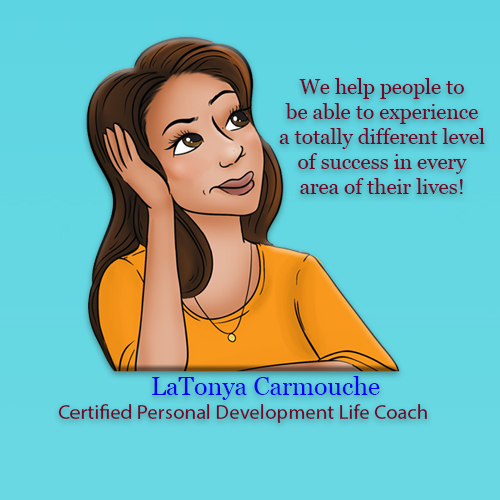
Letting go is one of the most challenging and liberating experiences you can have in life. Letting go of something that no longer serves you, is a big deal. It requires you to make room for something new to take its place. Because old things don’t necessarily have to stay that way. Sometimes, they need to be forgiven and put back into service again. The power of forgiveness lies in how it causes us to change and transform our relationship with those who have wronged us. It allows us to see the opportunity in their past instead of dwelling on what could have been or moving on in an attempt to forget or erase the past. By forgiving, we free ourselves from negative patterns and patterns of behavior linked to trauma or challenging events in our life history. We are able to look beyond the hurtful actions taken against us and see that these people were also wounded by life circumstances beyond their control.

# The Power of Forgiveness - How to Let Go of Past Challenges and Find Peace
Letting go is one of the most challenging and liberating experiences you can have in life. Letting go of something that no longer serves you is a big deal. It requires you to make room for something new to take its place. Because old things don’t necessarily have to stay that way. Sometimes, they need to be forgiven and put back into service again.
What is the cause of anger?
Anger is a natural emotion that arises when we feel threatened or hurt. When someone offends us, our brain’s fight or flight response kicks in and we feel a rush of adrenaline. This is where the feeling of anger comes from. It’s a natural response to a perceived threat or hurt.
But when anger is not dealt with properly, it can lead to resentment, bitterness, and even hatred.

These negative emotions can eat away at us and make us feel miserable. They can also take a toll on our physical health, causing stress-related illnesses like high blood pressure and heart disease.
To overcome the negative effects of anger, we need to learn how to control it. This can be done by taking deep breaths, counting to ten, or simply walking away from the situation. By taking a step back and giving ourselves time to cool off, we can avoid saying or doing something we might later regret.
How to stop being abusive?
Abusive behavior is never acceptable, and it can have serious consequences for both the abuser and the victim. If you find yourself being abusive towards someone, it’s important to seek help immediately. This could mean talking to a therapist, joining a support group, or seeking out other resources in your community.

One of the key things to remember when trying to stop abusive behavior is that it takes time and effort. You will need to be patient with yourself and others, and you will need to be willing to make changes in your behavior. This might mean learning new communication skills, setting boundaries, or finding healthy ways to cope with stress and anxiety.
It’s also important to remember that seeking help is a sign of strength, not weakness. By taking steps to address your abusive behavior, you are showing that you are committed to making positive changes in your life.
How to forgive someone who has hurt you?
Forgiveness is a powerful tool that can help us heal from past hurts and find peace in our lives. But forgiving someone who has hurt us can be incredibly difficult.

It requires us to let go of our anger and resentment, and to be willing to see the other person’s perspective.
To start the process of forgiveness, it can be helpful to write down your feelings about the situation. This can help you identify your emotions and gain a better understanding of why you are feeling the way you are. It can also be helpful to talk to a trusted friend, family member, or therapist about your feelings.
Once you have a better understanding of your emotions, you can begin to work on forgiving the other person. This might mean practicing empathy and trying to see things from their perspective. It might also mean setting boundaries to protect yourself from future hurt.
Ultimately, forgiveness is a journey, and it may take time to get there. But by taking small steps towards forgiveness each day, you can make progress towards healing and finding peace.

What lies behind a person who is unwilling to forgive?
There are many reasons why a person might be unwilling to forgive. Sometimes, it’s because they are still in the midst of their anger and resentment. Other times, it’s because they feel that forgiving would be a sign of weakness or that it would let the other person off the hook.
But holding onto anger and resentment can be incredibly damaging to our mental and physical health. It can lead to stress-related illnesses like high blood pressure and heart disease, and it can make us feel miserable and unhappy.
If you are struggling to forgive someone, it’s important to remember that forgiveness is not about letting the other person off the hook. It’s about freeing yourself from the negative emotions that are holding you back. By forgiving, you can find peace and move forward with your life.
Bottom Line
Forgiveness is a powerful tool that can help us heal from past hurts and find peace in our lives. But it is not always easy. It requires us to let go of our anger and resentment, and to be willing to see the other person’s perspective. By taking small steps towards forgiveness each day, we can make progress towards healing and finding peace.
Conclusion
In conclusion, the power of forgiveness lies in how it causes us to change and transform our relationship with those who have wronged us. It allows us to see the opportunity in their past instead of dwelling on what could have been or moving on in an attempt to forget or erase the past. By forgiving, we free ourselves from negative patterns and patterns of behavior linked to trauma or challenging events in our life history.
We are able to look beyond the hurtful actions taken against us and see that these people were also wounded by life circumstances beyond their control. Forgiveness is a journey, but it is one that is worth taking.
 Add Row
Add Row  Add
Add 




Write A Comment